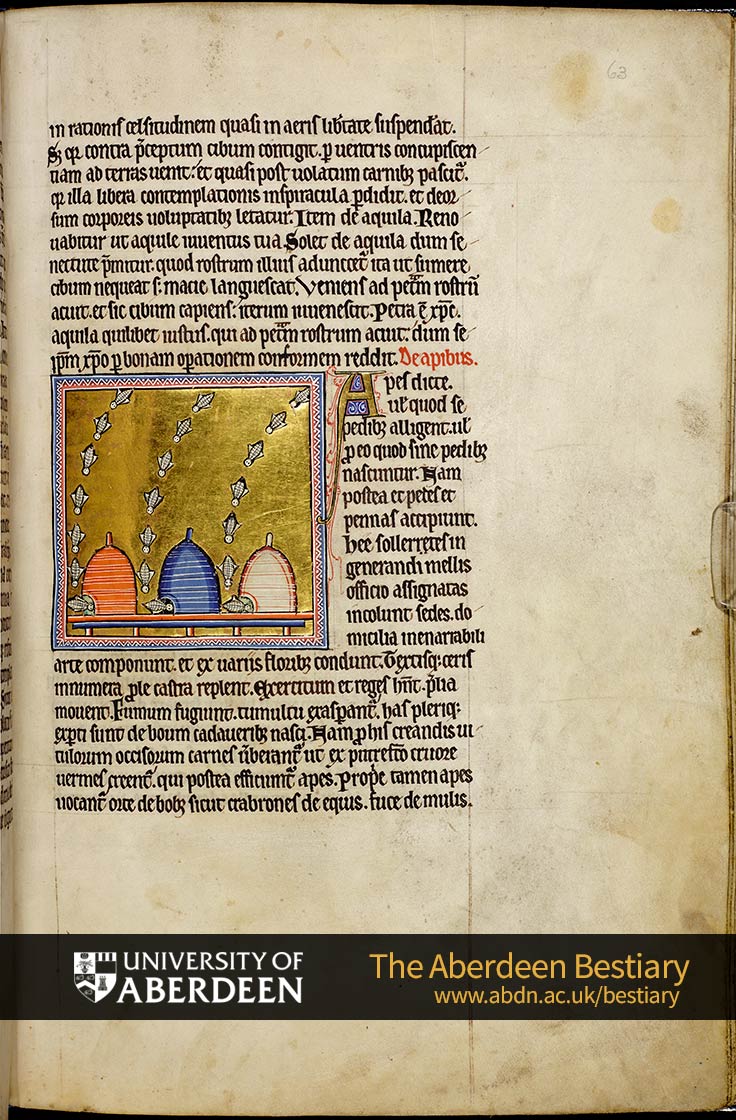Folio 63r - the eagle, continued. De apibus; Of bees
set him him at the height of reason, as if in the freedom of the air. But because, against God's order, he took food, he came down to earth, driven by the longing in his stomach, and now feeds on meat, like the eagle after its flight, because he lost those free air-currents of contemplation, and now takes pleasure, on the ground, in carnal desires.
Again of the eagle. 'Thy youth is renewed like the eagle's' (Psalms, 103: 5). It is usually said of the eagle that, when it suffers from old age, its beak grows hooked so that it cannot eat food but grows weak from under-nourishment. When it comes upon a rock, it sharpens its beak, and taking food once more, regains its youth.
The rock is Christ; the eagle, a righteous man, who sharpens his beak on the rock when he renders himself like Christ through virtuous conduct.
Of bees
Bees, apes, are so called either because they hold on to things with their feet, or because they are born without feet (the Latin word for 'foot' is pes). For afterwards they acquire both feet and wings.
Expert in the task of making honey, they occupy the places assigned to them; they construct their dwelling-places with indescribable skill, and store away honey from a variety of flowers. They fill their fortress, made from a network of wax, with countless offspring.
Bees have an army and kings; they fight battles. They flee from smoke; they are irritated by noise; many are found to have been born from the corpses of oxen. To produce them, you beat the flesh of dead calves, so that worms come forth from the putrefying blood; these later become bees.
Properly speaking, however, only the creatures that come from oxen are called bees; those that come from horses, are hornets; those from mules, drones;

